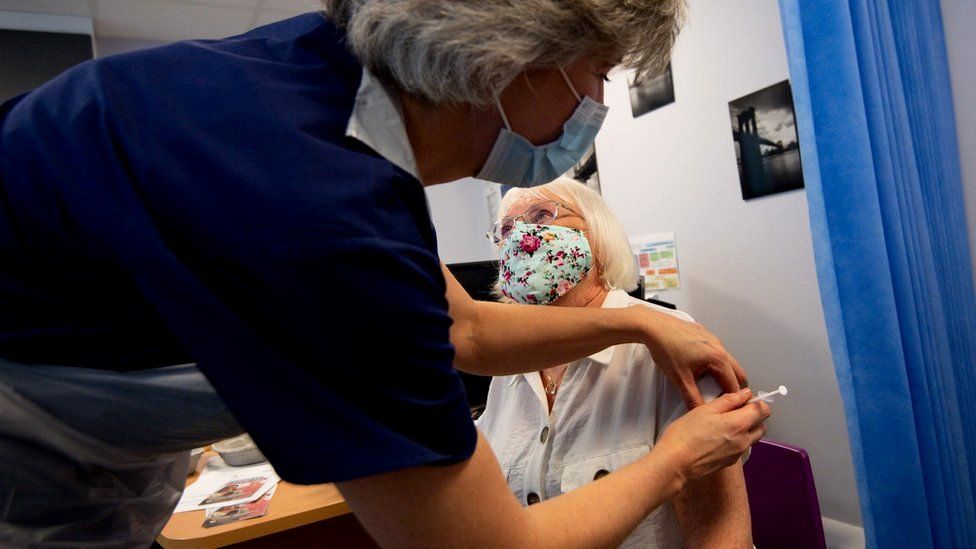Covid: WHO in 'close contact' with UK over new virus variant
The World Health Organization (WHO) has said it is in "close contact" with UK officials over the emergence of a new variant of coronavirus.
The new variant is spreading more rapidly than the original version, but is not believed to be more deadly.
Large parts of south-east England, including London, are now under a new, stricter level of restrictions in a bid to curb the rapidly spreading virus.
There is no evidence to suggest the new variant reacts differently to vaccines.
On Sunday, the Netherlands introduced a ban on passenger flights from the UK because of the new variant. The ban will remain in place until 1 January, the Dutch government said.
The move comes after sampling of a case in the Netherlands earlier this month revealed the same new variant of coronavirus as that found in the UK.
Pending "greater clarity" on the situation in the UK, it said "the risk of the new virus strain being introduced to the Netherlands should be minimised as much as possible".
The Dutch government also said it would work with other European Union member states in the coming days to "explore the scope for further limiting the risk of the new strain of the virus being brought over from the UK".
What do we know about the new variant?
The WHO tweeted that it was in contact with UK officials over the new variant.
It said the UK was sharing information from ongoing studies into the mutation, and that the WHO would update member states and the public "as we learn more about the characteristics of this virus variant [and] any implications".
Although there is "considerable uncertainty", UK Prime Minister Boris Johnson said the new variant may be up to 70% more transmissible than the old one.
But officials say there is no current evidence to suggest the new variant causes a higher mortality rate or that it is affected any differently by vaccines and treatments.
"I think this is a situation which is going to make things a lot worse, but there are some really optimistic things if you look once we get the vaccine out, assuming the vaccine works against this, which at the moment is the working assumption," said England's chief medical officer, Prof Chris Whitty.





Post a Comment